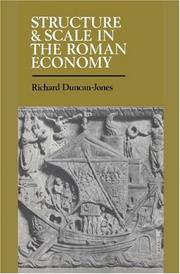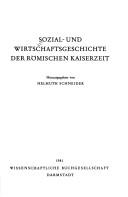| Listing 1 - 10 of 71 | << page >> |
Sort by
|
Digital
Year: 1804 Publisher: Braunschweig Bei Alexandre Pluchart und in Leipzig bei J. Besson
Abstract | Keywords | Export | Availability | Bookmark
 Loading...
Loading...Choose an application
- Reference Manager
- EndNote
- RefWorks (Direct export to RefWorks)
Digital
Year: 1840 Publisher: Paris L. Hachette
Abstract | Keywords | Export | Availability | Bookmark
 Loading...
Loading...Choose an application
- Reference Manager
- EndNote
- RefWorks (Direct export to RefWorks)
Book
Year: 1996 Publisher: St. Katharinen Scripta Mercaturae
Abstract | Keywords | Export | Availability | Bookmark
 Loading...
Loading...Choose an application
- Reference Manager
- EndNote
- RefWorks (Direct export to RefWorks)

ISBN: 0521354773 0521892899 0511552645 9780521354776 9780511552649 9780521892896 Year: 1990 Publisher: Cambridge : Cambridge University Press,
Abstract | Keywords | Export | Availability | Bookmark
 Loading...
Loading...Choose an application
- Reference Manager
- EndNote
- RefWorks (Direct export to RefWorks)
This book by the author of The Economy of the Roman Empire: Quantitative Studies considers important interlocking themes. Did the Roman Empire have a single 'national' economy, or was its economy localised and fragmented? Can coin and pottery survivals demonstrate the importance of long-distance trade? How fast did essential news travel by sea, and what does that imply about Mediterranean sailing-patterns? Further subjects considered include taxation, commodity-prices, demography, and army pay and manpower. The book is very wide-ranging in its geographical coverage and in the evidence that it explores. By analysing specific features of the economy the contrasting discussions examine important questions about its character and limitations, and about how surviving evidence should be interpreted. The book throws new and significant light on the economic life of Europe and the Mediterranean in antiquity, and will be valuable to ancient historians and students of European economic history.
Rome --- Economic conditions. --- Economic conditions --- Conditions économiques --- Rome - Economic conditions. --- Arts and Humanities --- History --- Rome - Economic conditions
Book
ISBN: 9788882655624 8882655628 Year: 2009 Volume: 32 Publisher: Roma : "L'Erma" di Bretschneider,
Abstract | Keywords | Export | Availability | Bookmark
 Loading...
Loading...Choose an application
- Reference Manager
- EndNote
- RefWorks (Direct export to RefWorks)
Agriculture --- Rome --- Economic conditions --- Commerce --- Conditions économiques --- Economic conditions. --- Conditions économiques --- Rome - Economic conditions --- Commerce.
Book
ISBN: 9780198723714 0198723717 Year: 2016 Publisher: New York (N.Y.) : Oxford university press,
Abstract | Keywords | Export | Availability | Bookmark
 Loading...
Loading...Choose an application
- Reference Manager
- EndNote
- RefWorks (Direct export to RefWorks)
Rome --- Economic conditions --- Commerce --- History --- Rome - Economic conditions --- Rome - Commerce --- Rome - Commerce - History
Book
ISBN: 9788891302816 8891302813 Year: 2013 Publisher: Roma : L'Erma di Bretscheneider,
Abstract | Keywords | Export | Availability | Bookmark
 Loading...
Loading...Choose an application
- Reference Manager
- EndNote
- RefWorks (Direct export to RefWorks)
Modern scholarship dealing with the economy of the ancient world has developed rapidly in recent decades. Studies of ancient economic structures and history have in many respects achieve standards as a discipline comparable to those of economic history, using models and scenarios exactly as it is frequently seen in studies of later periods with better sources. The best example is perhaps the historical demography of Roman Italy. It was a marginal field of research until the early 1990s, but is now one of the key subjects in the study of Roman economy with a lively debate between the followers of a low count reconstruction of the demographic development in Roman Italy versus the scholars who favour a high count. Furthermore, quantitative studies have become serious scholarship and are no longer despised as only number games' as is apparent, for instance, from the new Oxford Roman Economy Project.' This is due to the great amount of published archaeological material such as terra sigillata, amphorae and shipwrecks. It is also illustrated by the shift from the predominant orthodoxy of the primitivism in the 1970s and 1980s to theoretical and methodological orientations inspired by the so-called New Institutional Economics and a diversity of approaches. But it has also rightly been pointed out that the struggle between primitivists' and modernists' , which still, a century later, continues to haunt scholarly discussions, often under the revealing name of minimalists and maximalists, signifying that the problem has often wrongly been reduced to one of quantities, mainly of trade. All the chapters of this book were originally published as articles or contributions to proceedings of different conferences between 1990 and 2010
Land use--Rome --- Labor--Rome --- Rome--Economic conditions --- Rome--Social conditions

ISBN: 3534078063 9783534078066 Year: 1981 Volume: 552 Publisher: Darmstadt : Wissenschaftliche Buchgesellschaft (WBG),
Abstract | Keywords | Export | Availability | Bookmark
 Loading...
Loading...Choose an application
- Reference Manager
- EndNote
- RefWorks (Direct export to RefWorks)
Rome --- Social conditions --- Economic conditions --- Social conditions. --- -Rome --- Rome - Social conditions --- Rome - Economic conditions - 30 B.C.-476 A.D
Book
ISBN: 0521201659 9780521201650 Year: 1974 Publisher: London : Cambridge University Press,
Abstract | Keywords | Export | Availability | Bookmark
 Loading...
Loading...Choose an application
- Reference Manager
- EndNote
- RefWorks (Direct export to RefWorks)
Rome --- Economic conditions. --- Economic conditions --- Conditions économiques --- Rome - Economic conditions --- Histoire --- 30 av. j.-c.- 476 (empire) --- Conditions economiques
Book
ISBN: 9780199562596 0199562598 019172145X 0199679290 0191570044 9786612348969 1282348965 Year: 2009 Volume: *1 Publisher: Oxford : Oxford University Press,
Abstract | Keywords | Export | Availability | Bookmark
 Loading...
Loading...Choose an application
- Reference Manager
- EndNote
- RefWorks (Direct export to RefWorks)
Rome --- Economic conditions. --- Economic conditions --- Research. --- Econometric models. --- Conditions économiques --- Recherche --- Modèles économétriques --- Research --- Econometric models --- Conditions économiques --- Modèles économétriques --- Rim --- Roman Empire --- Roman Republic (510-30 B.C.) --- Romi (Empire) --- Byzantine Empire --- Rome (Italy) --- Rome - Economic conditions --- Rome - Economic conditions - Research --- Rome - Economic conditions - Econometric models
| Listing 1 - 10 of 71 | << page >> |
Sort by
|

 Search
Search Feedback
Feedback About UniCat
About UniCat  Help
Help News
News